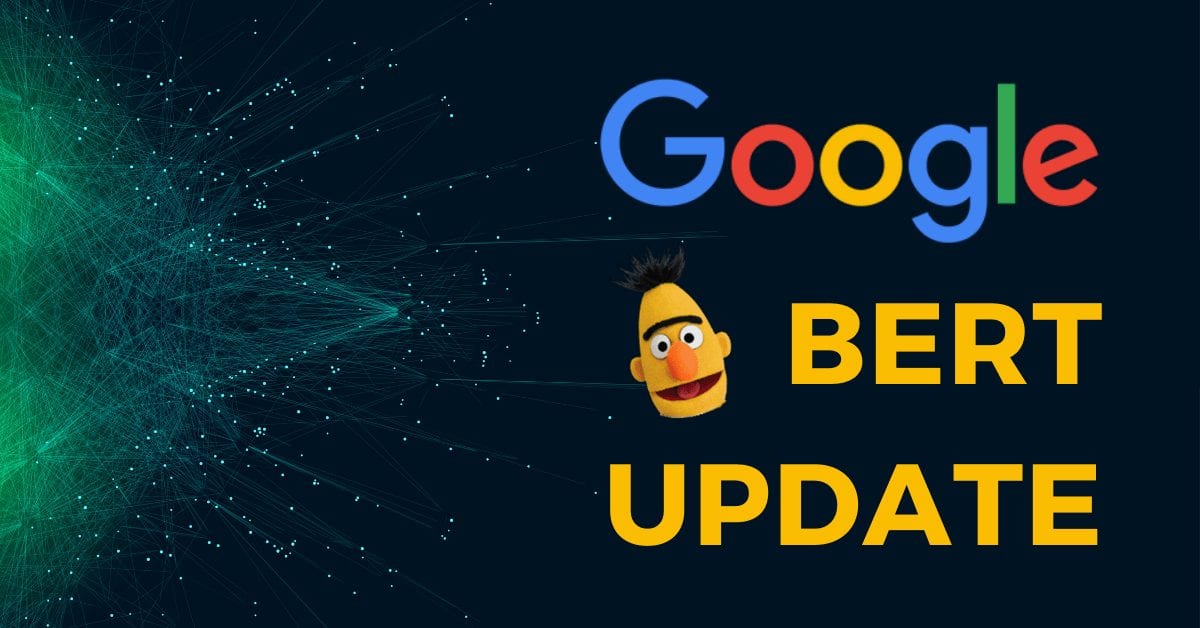Google rolls out B.E.R.T Update – What does this mean for your website?
Last week Google began rolling out it’s biggest update since Rankbrain was released back in 2015. Their announcement on their Webmasters blog by vice-head of search Pandu Nayak claims that this update will affect 1 in 10 of all searches so it’s pretty major news!
What is B.E.R.T and how does it work?
B.E.R.T stands for Bidirectional Encoder Representations from Transformers.
Sounds complicated right? Don’t worry you don’t need to fully understand the science behind it to understand what it means.
Basically, it is a technique that has been developed for natural language processing – similar to how your Amazon Echo or iPhone uses voice recognition to find what you want rather than, in some cases, what you asked for!
They wrote about this open-sourced technique back in November 2018 on their AI blog.
Essentially these transformers, are models that process the words in a phrase in relation to one and other, rather than looking at one word after another, or simply as separate words. This means that Google can look at the full context of a search phrase, as these systems learn how different words interact with each other to create different contexts.
In fact, this new system is so advanced and complex that it needed new cloud TPU software to take on some of the strain, as Google’s traditional hardware struggled to cope.
What does this mean for users?
As we mentioned previously, Google claims this update will help answer 1 in 10 searches that are currently ‘unknown’ to Google. (15% of searches that Google receives every day have never been seen before!)
At the moment this works in the US for English searches, but over time it will be rolled out in other languages and other countries including the UK and Ireland.
It is predicted this will particularly help more long-tail phrases, especially for those searches which use filler words such as ‘to’ or ‘for’.
B.E.R.T verses Rankbrain
B.E.R.T is not a replacement for Rankbrain but rather an addition to it’s NLP (natural language processing). Google will use a number of different algorithms dependant on the nature of the search query. For some searches, Rankbrain will be used, and for others, they will use B.E.R.T.
In fact, Multiple methods can be used at once to understand a search query. For example; if it’s a query that hasn’t been seen before they may apply B.E.R.T but then if it was misspelled Google can apply it’s spelling system to return what it believes you meant to spell, and so on.
How to optimise your website and content for B.E.R.T
The short answer is you can’t. It’s as close to a true AI (artificial intelligence) as Google has come up with (or rather, has released onto the internet) so there’s no tricking it.
Our advice remains the same as it was for the Rankbrain update. Just create well-written NATURAL content.
Don’t keyword stuff, don’t use bots to create content and try to write in a language that is native to you, or if not hire someone who can!
These give you the best chance of even getting on the ladder, but of course, we all know there’s still plenty more that needs to be done to climb it 🙂
Of course with an update like this, there will be fluctuations, but as SEO’s the impact won’t feel as big, compared to what we may see with core updates, or updates such as Panda, Penguin etc because realistically there is not much we can do about it, apart from continuing to create naturally-written content.


